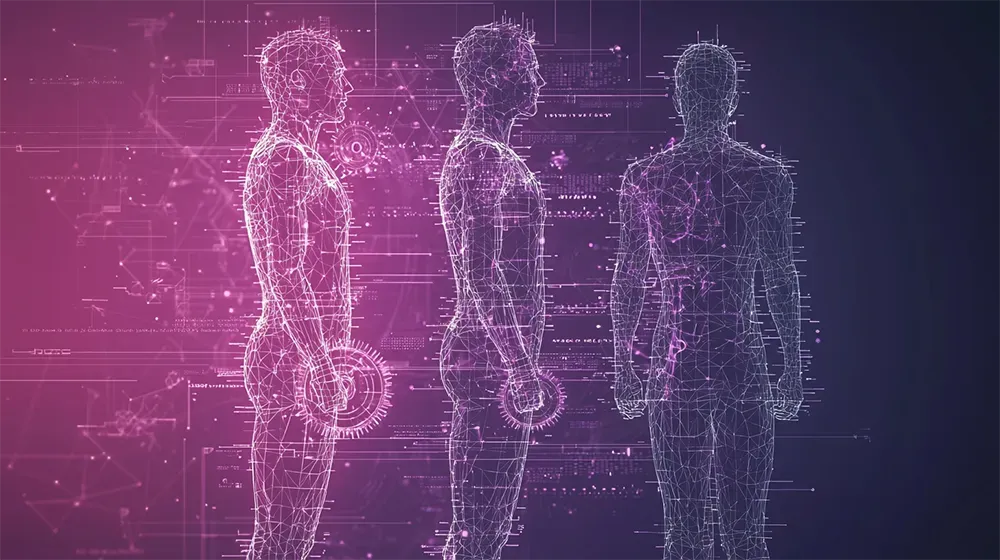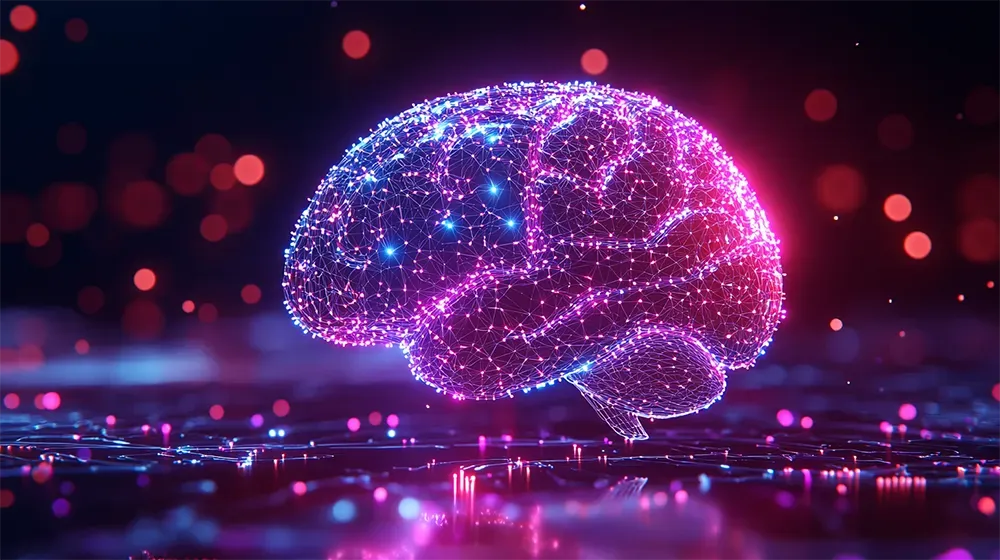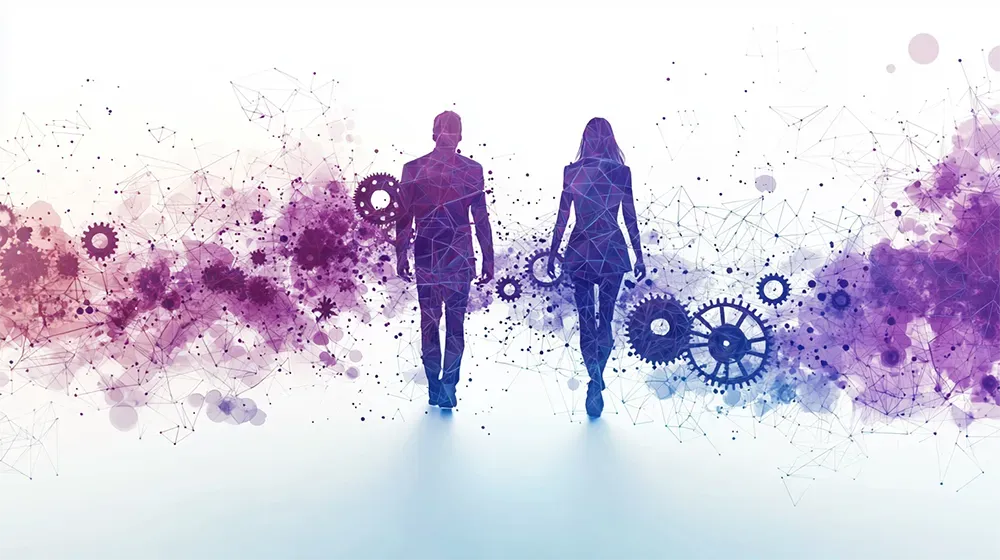The AI Survival Guide: Embrace Resilience in a World of Change

In a world where technological advancements are accelerating at an unprecedented pace, resilience has become a necessity and a strategic asset for organizations. The Intelligence Age, driven by rapid innovations in artificial intelligence (AI), spatial intelligence, quantum computing, and other cutting-edge technologies, has shifted how businesses operate. Leaders must adapt, anticipate and evolve with these changes to ensure their organizations thrive.
Resilience in the Intelligence Age demands more than an ability to withstand disruption; it requires a forward-thinking mindset, continuous education, an adaptive organizational culture, and a willingness to embrace innovation on an ongoing basis. A resilient business sees exponential change as an opportunity to strengthen, not simply survive. In a digital landscape increasingly defined by AI, resilience becomes synonymous with adaptability, foresight, and proactive engagement with new technologies.
But how can organizations achieve this level of resilience? I believe we are all futurists building tomorrow. As futurists, we must guide companies in cultivating this resilience through a blend of anticipation, flexibility, education, and a deep commitment to ethical innovation. Building resilience in a future defined by AI means rethinking traditional business strategies and embracing change as a path to growth.
Lessons from the Road: Personal Resilience in a Digital Context

Reflecting on my own journey, I discovered resilience’s transformative power in an unlikely place: a 14,000-kilometer cycling trip around Australia. This grueling journey required perseverance, adaptability, and a long-term perspective—all crucial traits for resilience in the Intelligence Age. Facing the unpredictable challenges of the road, I learned invaluable lessons that now shape my perspective as a futurist. The parallels between this experience and today’s business landscape are profound.
For instance, adaptability was key. Just as the road required me to adjust to constantly changing conditions, businesses today must adapt to rapid technological shifts. The Intelligence Age doesn’t afford organizations the luxury of complacency; change is constant and often unpredictable. Resilience is about more than just withstanding change; it’s about transforming challenges into opportunities and finding creative ways to navigate uncharted territory. Resilience should thrive in the face of change.
Adapting to the Digital Renaissance

We’re living through what I call a “Digital Renaissance.” Just as the European Renaissance redefined art, science, and culture, this period of technological convergence is set to reshape every aspect of our lives. Innovations in AI, blockchain, the metaverse, and quantum computing are accelerating and reshaping industries and societies. The difference? Unlike the centuries-long transformation of the past, this renaissance is happening within a matter of years.
This shift represents a “phase transition,” a complete transformation that challenges businesses to view their operations and strategies through a new lens. Such a phase transition requires a Gestalt Shift—a fundamental change in perspective. Building resilience in the Intelligence Age means seeing beyond individual technologies and recognizing the interconnectedness that defines our current landscape. Just as a phase transition transforms water into ice, companies must transform their perspectives to navigate the rapid changes ahead.
AI is at the forefront of this change, driving breakthroughs in healthcare, education, climate solutions, and beyond. However, it’s also presenting us with significant challenges: job displacement, privacy concerns, and the ethical dilemmas of autonomous systems. To navigate this landscape, resilience is not optional—it is essential.
Preparing for the Era of Thinking Machines

Artificial intelligence is at the heart of this transformation, embodying both immense opportunity and significant challenge. The roots of AI trace back to visionaries like Alan Turing, who foresaw the potential for “thinking machines.” Today, AI has advanced to the point where it’s expected to contribute $20 trillion to the global economy by 2030. This unprecedented growth has spurred an arms race among tech giants and investors, each vying to create the next generation of intelligent systems.
But building resilience in the age of AI goes beyond implementing technology; it’s about fostering a culture that understands and leverages AI’s potential and mitigates AI’s risks. It also requires building a solid data foundation. Data, often called the “new oil,” serves as the foundation of this transformation, yet data differs from oil in one crucial way: it gains value through repeated use. In a world where AI adoption is accelerating, businesses must treat their data not as a byproduct of operations but as a central strategic asset. The companies that recognize this and invest in robust data foundations will emerge as leaders in an AI-driven world.
For organizations to thrive, fostering digital literacy is paramount. This means embedding education and upskilling into the culture, ensuring employees at all levels understand and effectively use data, AI, and emerging technologies. Training should be continuous, tailored to evolving industry and personal needs, and designed to equip individuals with the tools to make informed decisions. By prioritizing education, organizations enable employees to adapt quickly to market shifts, innovate effectively, and collaborate intelligently, ensuring resilience and competitiveness in an era of constant technological change.
For example, companies like JP Morgan invest billions per year in AI, training employees in prompt engineering and developing AI tools to enhance productivity. This level of investment signals a commitment to resilience, transforming data from mere operational input to a source of insight and foresight and continuously upskilling their staff. Companies with a robust digital literacy foundation are better equipped to withstand disruption and are more likely to seize new opportunities.
By embedding AI and data strategies into their core and upskilling their stakeholders, companies position themselves to outperform those that lag in technology adoption. A strong digital foundation doesn’t just support efficiency; it drives continuous innovation, allowing organizations to pivot and evolve as technology advances. This approach turns resilience from a reactive strategy into a proactive framework for thriving in the Intelligence Age.
The Challenges of the Intelligence Age

Every era of transformation brings opportunities, but it also introduces significant challenges. As we navigate the Digital Renaissance, resilience will be tested by issues impacting individuals, organizations, and society. These challenges are not insurmountable but require foresight, adaptability, and a commitment to ethical leadership to address effectively. I believe there are three most crucial challenges we face, and organizations must understand how to navigate these challenges:
1. Job Displacement
Automation and AI are reshaping industries, automating tasks, and creating efficiencies. While these advancements unlock innovation, they also pose a significant threat to traditional employment. Millions of jobs, especially those reliant on repetitive or manual processes, are at risk. In fact, I believe AI will destroy 1 billion jobs by 2030. Addressing this requires a twofold approach:
- Investment in Reskilling: Governments, businesses, and educational institutions must work together to provide accessible and affordable training programs for displaced workers. Singapore’s approach to offering grants to anyone over 40 is a start but not the solution.
- Workforce Transition Support: Policies should include social safety nets and incentives for industries to create new opportunities in emerging fields like AI, robotics, and green energy.
- Universal Basic Income: A recent study showed that a UBI does not promote laziness but instead results in mental health improvements, while long-term financial planning and entrepreneurial thinking flourished. Unlike traditional welfare, UBI’s flexibility empowers individuals to address unique needs, hinting at its potential to foster resilience and growth in a tech-driven future.
The future of work must be designed to ensure people remain at the center of technological progress, but we must also prepare for an era where at least, on average, 20% of the global workforce is out of a job.
2. Hyper-Surveillance
The rise of AI-powered surveillance tools has heightened privacy concerns. Companies and governments collect vast amounts of data to optimize services or enhance security, but this comes with risks of overreach and misuse. Striking a balance between innovation and privacy is essential.
- Privacy-First Design: Developers and organizations must embed privacy safeguards into their systems from the ground up.
- Ethical Frameworks: Strong, enforceable regulations must govern data collection, ensuring transparency and consent.
Without these measures, trust in technology will erode, stifling progress and harming our freedoms.
3. Misinformation
The digital revolution has democratized access to information and enabled the rapid spread of falsehoods. Deepfakes, AI-generated content, and disinformation campaigns are becoming increasingly sophisticated. This misinformation undermines trust in institutions and divides communities.
For example, Arup fell victim to a $25 million deepfake scam via Zoom, where an employee authorized fraudulent transactions after being fooled by convincing AI-generated videos of board members. WPP faced a similar attempt but avoided financial loss through vigilant staff who spotted inconsistencies. Ferrari, however, showcased how proactive defenses can thwart these attacks. An executive verified the identity of a "CEO" by asking a personal question about a recent book recommendation, exposing the fraud.
As AI scams rise, businesses must adopt multi-layered verification, educate employees, and prepare for a new age of sophisticated fraud. Most importantly, however, companies should foster a culture where employees feel empowered to question their seniors. Three critical elements must be prioritized:
- Psychological Safety: Create an environment where raising concerns or questioning authority is seen as constructive rather than confrontational. Leaders must welcome inquiries and model openness by encouraging discussion without punitive repercussions.
- Training on Critical Thinking: Equip employees with the skills to identify inconsistencies, like spotting red flags in communications or discrepancies in behavior. This empowers them to engage with confidence when something feels "off."
- Clear Communication Protocols: Establish verification systems where questioning is normalized, such as requiring secondary checks for significant decisions. This makes challenges a routine safeguard rather than an exception.
When these elements align, organizations become more resilient against deepfake scams or other deceptions.
These challenges—job displacement, hyper-surveillance, and misinformation—are reminders that the path to resilience demands more than adaptation; it requires transformation. By addressing these obstacles with ethical and forward-thinking strategies, we can build a future where technology serves humanity, not the other way around. Resilience is not about avoiding challenges but embracing them as opportunities to create a better, more equitable world. The choice to lead in this effort is ours, and the time to act is now.
Resilience as the Blueprint for the Future

The Digital Renaissance is not something that will happen to us—it is something we are actively shaping. Each decision we make, each innovation we adopt, and each challenge we overcome contributes to the world we are building. Resilience is not just about weathering storms; it is about creating systems that thrive in their wake.
Since we are all the architects of tomorrow, we all bear the responsibility to shape a future where resilience is not merely about enduring change but leveraging it to drive meaningful innovation. Resilience means embedding a forward-thinking mindset at every level of the organization, empowering teams to adapt to change with agility and confidence.
As we stand on the threshold of this new era, I invite you to become architects of tomorrow. Whether you are leading a business, working in a team, or pursuing personal growth, you have the power to shape a future where technology and humanity coexist in harmony. The tools are here, the challenges are real, and the opportunity is immense.
Are you ready to redefine resilience and thrive through AI’s unstoppable change? The journey begins now.





